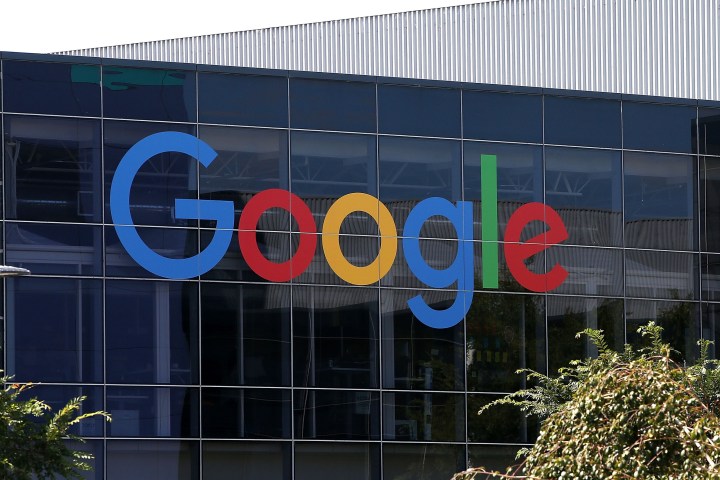
Why do companies flush with cash still carry debt?

This is just one of the stories from our “I’ve Always Wondered” series, where we tackle all of your questions about the world of business, no matter how big or small. Ever wondered if recycling is worth it? Or how store brands stack up against name brands? Check out more from the series here.
Listener Jonathan Mahaffy from Colorado Springs, Colorado, asks:
Why do companies that are awash in cash carry debt?
Google has so much cash that it can fund the entirety of California’s high-speed rail ambitions, with some spare change, or the Joe Biden administration’s free nationwide community college plan.
But even with all that money, it has plenty of long-term debt, and it doesn’t seem eager to pay it off.
In late 2022, Google’s parent company, Alphabet, had a total of $116.3 billion in cash, cash equivalents and marketable securities, which can easily be turned into cash. But it carries almost $14.7 billion in long-term debt. Meanwhile, Microsoft has $107.3 billion in its coffers, but it owes $45.4 billion.
One reason companies carry debt — even big, profitable ones like Alphabet — is that they’re trying to time the bond market, said Matteo Arena, a finance professor at Marquette University.
Between 2014 and 2020, the U.S. generally had very low interest rates, making borrowing attractive, he explained. If companies waited to borrow later, they’d have to risk paying higher interest rates, which many did in 2022.
In 2020, Alphabet was able to sell $10 billion of bonds at record-low borrowing costs, The Financial Times reported.
Arena said companies like Alphabet and Apple also have very high credit ratings because of their cash balances and robust profits. So they get lower interest rates than many other companies would.
Some corporations, like the Walt Disney Co. and Coca-Cola, have even issued 100-year bonds at certain points in their history to lock in low rates, said Mai Iskander-Datta, a finance professor at Wayne State University.
There are other advantages to carrying debt. If companies need cash and are paying interest on their debt, that interest is tax-deductible, said David Smith, the Virginia Bankers Association professor of commerce at the University of Virginia.
“That helps reduce their tax burden,” he said.
Smith added that having debt can be a way that companies keep “management on their toes.”
He said managers are required to generate enough return to help the company pay interest before any money is distributed to shareholders. And oftentimes, debt instruments have covenants that require management to maintain a certain level of performance.
Finance experts point out that excess cash provides valuable flexibility. And it’s an ongoing trend. Many companies around the world have built up sizable cash holdings over the past several decades, Iskander-Datta explained, as corporate profits climbed.
Because of globalization, she said, companies are facing greater competition. In the event of a downturn, companies with more cash on hand can often avoid laying off workers. This key asset can enable them to emerge in a better position and even acquire other companies.
“They can use the money to buy up companies that are struggling because they didn’t have enough cash,” she said. “It can help them have a real edge.”
Iskander-Datta noted that having money in the bank is crucial for companies in dynamic growth industries or those focused on research and development because they’re in riskier business environments.
But in some cases, having a giant cash hoard on your balance sheet can stir up problems. If a company is not “putting the cash to work” by investing in profitable opportunities, according to Smith, it can become the target of activist investors. These disrupters could pressure the company to start paying, or increase, shareholder dividends.
Jing Wang, an assistant finance professor at the University of Missouri, noted one important caveat when it comes to a company’s cash balance. Some of it may not be entirely accessible — especially for large, international companies like Google and Apple.
That’s because they would have to pay a repatriation tax on cash generated overseas that they bring back to the U.S. “It’s very costly for them to do that,” she said.
Matteo Arena of Marquette noted the irony that the companies that don’t need to borrow can afford to take on debt and even pay higher rates, while it’s tough sledding for those with low profitability and meager cash holdings. Since they present more risk to the lender, those needier second-tier companies are often faced with heavier interest charges.
“They are more exposed to the possibility of bankruptcy when things turn sour,” Arena said.
There’s a lot happening in the world. Through it all, Marketplace is here for you.
You rely on Marketplace to break down the world’s events and tell you how it affects you in a fact-based, approachable way. We rely on your financial support to keep making that possible.
Your donation today powers the independent journalism that you rely on. For just $5/month, you can help sustain Marketplace so we can keep reporting on the things that matter to you.


















